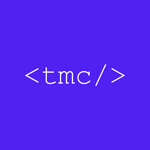
TeachMeCode InstituteTypically replies within 10 minutes
TeachMeCode Institute
Hello there! 🤝 Welcome to TeachMeCode Institute. How can we help you?
09:14
Hello there! 🤝 Welcome to TeachMeCode Institute. How can we help you?
09:14Part Time Course / 9 Hours
AI Prompt Engineering Skills Mastery
Discover the secrets of effective prompt engineering — the key skill for mastering AI tools. Learn how to structure prompts for precision, creativity, and control across platforms like ChatGPT, Claude, and Gemini.
Beginner Friendly
Price AED 900
AED 100.00/hour only
Explore CoursePart Time Course / 9 Hours
AI Prompt Engineering Skills Mastery
Discover the secrets of effective prompt engineering — the key skill for mastering AI tools. Learn how to structure prompts for precision, creativity, and control across platforms like ChatGPT, Claude, and Gemini.
Beginner Friendly
Price AED 900
AED 100.00/hour only
Explore CoursePart Time Course / 27 Hours
AI-powered Vibe Coding with biela.dev
Learn how to build modern, intelligent websites using Biela.dev — an AI-driven builder that helps you design, brand, and deploy professional web pages instantly.
Beginner Friendly
Price AED 1,999
AED 74.04/hour only
Explore CoursePart Time Course / 27 Hours
AI-powered Vibe Coding with biela.dev
Learn how to build modern, intelligent websites using Biela.dev — an AI-driven builder that helps you design, brand, and deploy professional web pages instantly.
Beginner Friendly
Price AED 1,999
AED 74.04/hour only
Explore CoursePart Time Course / 27 Hours
AI Marketing Automation Mastery
Learn to build and deploy AI-powered marketing systems that automate ad creation, content scheduling, and analytics — saving time while boosting results.
Beginner Friendly
Price AED 1,999
AED 74.04/hour only
Explore CoursePart Time Course / 27 Hours
AI Marketing Automation Mastery
Learn to build and deploy AI-powered marketing systems that automate ad creation, content scheduling, and analytics — saving time while boosting results.
Beginner Friendly
Price AED 1,999
AED 74.04/hour only
Explore CoursePart Time Course / 27 Hours
Real Estate AI Agent
Build smarter real estate systems using AI automation. Learn how to generate leads, manage clients, and streamline property marketing with advanced AI tools.
Beginner Friendly
Price AED 1,999
AED 74.04/hour only
Explore CoursePart Time Course / 27 Hours
Real Estate AI Agent
Build smarter real estate systems using AI automation. Learn how to generate leads, manage clients, and streamline property marketing with advanced AI tools.
Beginner Friendly
Price AED 1,999
AED 74.04/hour only
Explore CoursePart Time Course / 27 Hours
AI Sales & Lead Generation Engine
Master AI automation for sales and lead generation. Build pipelines that identify prospects, send outreach, and qualify leads — all through intelligent automation tools.
Beginner Friendly
Price AED 1,999
AED 74.04/hour only
Explore CoursePart Time Course / 27 Hours
AI Sales & Lead Generation Engine
Master AI automation for sales and lead generation. Build pipelines that identify prospects, send outreach, and qualify leads — all through intelligent automation tools.
Beginner Friendly
Price AED 1,999
AED 74.04/hour only
Explore CoursePart Time Course / 27 Hours
AI Content Creation Studio
Use AI to design, write, and automate branded content in minutes.
Beginner Friendly
Price AED 1,999
AED 74.04/hour only
Explore CoursePart Time Course / 27 Hours
AI Content Creation Studio
Use AI to design, write, and automate branded content in minutes.
Beginner Friendly
Price AED 1,999
AED 74.04/hour only
Explore CoursePart Time Course / 27 Hours
AI Business Operations & Productivity
Automate tasks, reports, and workflows across your business with the power of AI.
Beginner Friendly
Price AED 1,999
AED 74.04/hour only
Explore CoursePart Time Course / 27 Hours
AI Business Operations & Productivity
Automate tasks, reports, and workflows across your business with the power of AI.
Beginner Friendly
Price AED 1,999
AED 74.04/hour only
Explore CoursePart Time Course / 27 Hours
AI Agents & Automation Systems
Create and deploy intelligent AI agents to automate workflows and operations.
Beginner Friendly
Price AED 1,999
AED 74.04/hour only
Explore CoursePart Time Course / 27 Hours
AI Agents & Automation Systems
Create and deploy intelligent AI agents to automate workflows and operations.
Beginner Friendly
Price AED 1,999
AED 74.04/hour only
Explore CoursePart Time Course / 27 Hours
AI video creation and graphic animations
Use AI to design, edit, and animate videos for marketing and creative projects.
Beginner Friendly
Price AED 1,999
AED 74.04/hour only
Explore CoursePart Time Course / 27 Hours
AI video creation and graphic animations
Use AI to design, edit, and animate videos for marketing and creative projects.
Beginner Friendly
Price AED 1,999
AED 74.04/hour only
Explore Course

 Middle
Middle
Website Development: Design and develop responsive and visually appealing websites using WordPress, custom themes, and plugins to meet the client’s or company’s requirements.
Theme Customization: Customize and modify existing WordPress themes or create custom themes from scratch to achieve unique and brand-specific designs.
Plugin Development: Create and maintain custom WordPress plugins to add functionality and features to websites, ensuring optimal performance and security.
Content Management: Set up and configure WordPress to enable easy content management for clients or content creators, including creating custom post types and taxonomies.
Troubleshooting: Diagnose and resolve issues with WordPress websites, themes, plugins, and server configurations to ensure smooth operation.
Security: Implement security best practices to protect websites from vulnerabilities and threats, including monitoring for updates and applying security patches.
SEO Optimization: Implement SEO best practices, including optimizing website structure, metadata, and content to improve search engine rankings.
Performance Optimization: Optimize website performance by improving page load times, reducing resource usage, and implementing caching mechanisms.
Collaboration: Work closely with designers, content creators, and other developers to ensure seamless integration of design and functionality.
Documentation: Create and maintain documentation for website structure, code, and processes to facilitate ongoing maintenance and future development.
Continuous Learning: Stay updated with the latest WordPress developments, best practices, and emerging web technologies.
Qualifications:
Education: A bachelor’s degree in computer science, web development, or a related field is preferred, but not always mandatory. Relevant certifications and practical experience can be equally valuable.
WordPress Expertise: In-depth knowledge and experience with WordPress, including theme and plugin development, customization, and optimization.
PHP and MySQL: Proficiency in PHP programming and MySQL database management, as these are fundamental to WordPress development.
HTML/CSS: Strong skills in HTML and CSS for frontend development and the ability to create responsive web designs.
Version Control: Experience with version control systems like Git for collaborative development.
SEO Knowledge: Understanding of SEO best practices and the ability to implement them in web development.
Security Expertise: Knowledge of website security best practices, including securing WordPress installations and databases.
Performance Optimization: Ability to optimize website performance for speed and efficiency.
Problem-Solving: Strong problem-solving skills and the ability to troubleshoot and debug issues.
Communication: Effective communication and collaboration skills to work with designers, clients, and cross-functional teams.
Experience: 2-5 years of practical experience in WordPress development, with a portfolio of relevant projects.
Familiarity with Web Standards: Stay updated with web standards, best practices, and accessibility guidelines.
Detail-Oriented: Attention to detail to ensure pixel-perfect and error-free websites.
Multitasking: Ability to handle multiple projects and meet deadlines.
